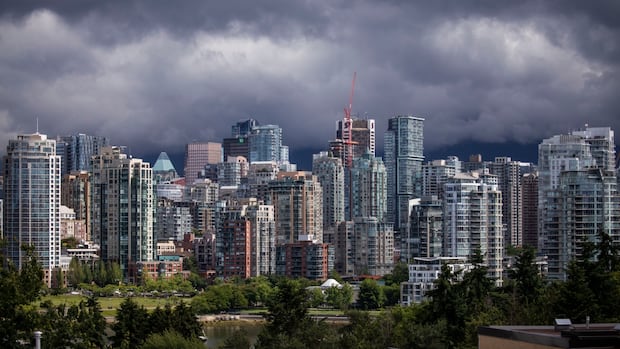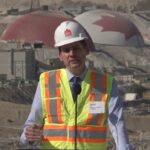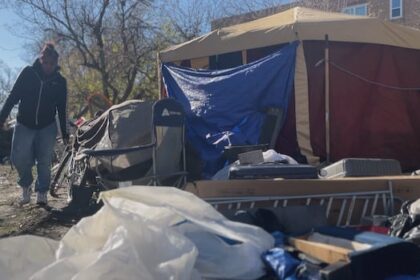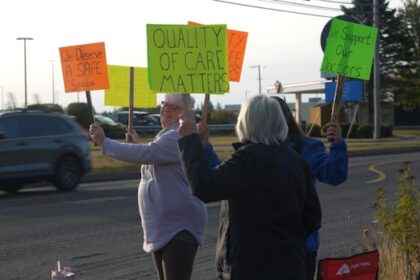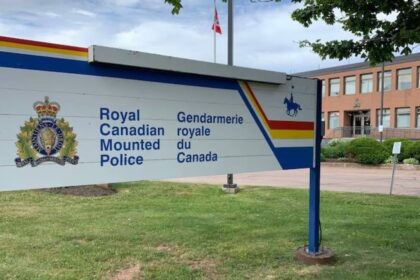British ColumbiaMetro Vancouver says the region is still growing, but at a slower and less predictable pace than previously forecast. It estimates the region will add an average of 42,500 new residents per year, reaching a population of 4.1 million by 2050. That’s down from last year’s projection of 50,000.Region now expected to grow by 42,500 people annually, down from 50,000 projected last yearShaurya Kshatri · CBC News · Posted: Sep 11, 2025 5:44 PM EDT | Last Updated: 5 hours agoMetro Vancouver says its latest population projections indicate slower and less predictable growth than previously projected due to recent federal immigration policy changes. (Ben Nelms/CBC)Metro Vancouver says the region is still growing, but at a slower and less predictable pace than previously forecast.In a new update released Thursday, the regional district estimates Metro Vancouver will add an average of 42,500 new residents per year, reaching a population of 4.1 million by 2050. That’s down from last year’s projection of 50,000 annual newcomers and a total population of 4.2 million by mid-century.The regional district says the change reflects recent federal immigration policy shifts, including lower immigration targets between 2025 and 2027 and new restrictions on non-permanent residents.Immigration, however, remains the main driver of long-term growth, projected to account for 90 per cent of the region’s population increase through 2051.”This isn’t necessarily unanticipated, thinking of those changing policies when it comes to, particularly, international migration,” said Andy Yan, director of Simon Fraser University’s City Program. “But it’s also illustrative, really, how population growth in Metro Vancouver is really going to be tied into migration, but very specifically international migration.”Yan said many newcomers are reconsidering their choice after realizing how difficult it has become to achieve a decent lifestyle in B.C.”Opportunities seem to be drying up and hence people are going to move to where the opportunities are,” he said. “A lot of times you have to think immigrants immigrate for opportunity. They don’t immigrate to be poor.”WATCH | Federal immigration cuts gut decades-old newcomer program in Vancouver: Federal immigration cuts gut decades-old newcomer program in VancouverThe federal government has announced it will reduce the number of temporary residents in Canada this year, and is cutting back funds for organizations that supported the newcomers. Vancouver’s Collingwood Neighbourhood House says the cut means they’re losing around 20 employees and may have to drop a decades-old support program too.The slowdown comes as B.C.’s overall population also saw a dip by more than 2,300 residents earlier this year. That’s the largest quarterly population loss since Statistics Canada started tracking these numbers in 1951. Under Ottawa’s 2025-27 Immigration Levels Plan, temporary residents such as international students and foreign workers are being capped, with a goal of reducing their share of the Canadian population to no more than five per cent by 2026.This year, B.C. can accept a maximum of 4,000 skilled workers from abroad, a cut by half compared to last year. And far fewer than the 11,000 skilled workers B.C. had asked Ottawa to approve. Metro Vancouver says its projections are a critical planning tool for housing, utilities, jobs and transit. TransLink recently ramped up service on 53 popular Metro Vancouver bus routes in response to growing ridership and population, the transport authority calling the changes its largest service expansion since 2018.B.C. Hydro has said it’s planning for the growth on multiple fronts. The Site C dam is said to increase electricity generation in the province enough to power more than half a million additional homes.The public utility has also launched a program to acquire 3,000 gigawatt hours per year of renewable energy, including wind and solar, as part of its $36-billion 10-year capital plan.The Site C dam as seen from the public viewpoint outside Fort St. John on Aug. 5, 2025. (Matt Preprost/CBC)Yan cautioned that the region’s population forecasts depend not only on immigration policy but also on whether the region can provide the opportunities and infrastructure people are seeking.”When we talk about population growth, it’s really ensuring that we have the social, economic and physical infrastructure to support this population,” he said.Metro Vancouver says it will release separate long-term projections for jobs and housing later this year.ABOUT THE AUTHORShaurya Kshatri is a web writer and reporter at CBC News Vancouver. You can reach him at shaurya.kshatri@cbc.caWith files from Karin Larsen
Metro Vancouver lowers population growth forecast due to federal immigration cuts
